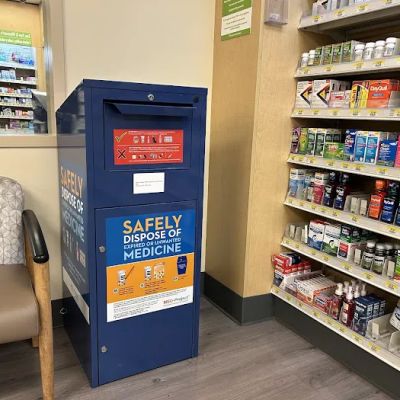How to Deal with the Emotional Impact of Heart Disease
When I was first diagnosed with heart disease, I felt overwhelmed by a flood of emotions. The fear of not knowing what the future held, the anxiety about the treatments, and the sadness that came with the changes in my lifestyle were all-consuming. What I didn’t expect was how much of an emotional toll heart disease would take on me. As I began my journey with heart disease, I quickly learned that managing the emotional impact was just as important as managing the physical symptoms. Through trial and error, I discovered coping strategies that not only helped me emotionally but also supported my heart health. Let me share my experience and what I’ve learned about dealing with the emotional impact of heart disease.

1. Understanding the Emotional Effects of Heart Disease
Heart disease doesn’t just affect the body—it can take a toll on the mind as well. I found myself constantly worrying about my health, which affected my mood, my relationships, and even my ability to focus on everyday tasks. The stress of living with a chronic condition can lead to feelings of depression, anxiety, and fear. Studies show that people with heart disease are more likely to experience mental health challenges, including depression and anxiety, which can in turn impact heart health. For me, understanding that these emotions were a natural response to my diagnosis was an important step toward addressing them. I realized that it was okay to feel scared or overwhelmed, but I needed to find ways to cope with those feelings so they didn’t control my life.
Atlanta Heart Specialists
atlanta heart specialists
4375 Johns Creek Pkwy #350, Suwanee, GA 30024, USA

2. Managing Anxiety and Fear
When you’re dealing with heart disease, there’s a constant undercurrent of fear. Fear about the future, fear about your heart health, and fear about the treatments can all feel paralyzing. I found that managing my anxiety was crucial not just for my mental well-being, but for my physical health as well. Research has shown that chronic stress and anxiety can contribute to high blood pressure and other heart disease risk factors, which can create a vicious cycle.
Here’s what worked for me in managing anxiety:
- Mindfulness and Meditation: Learning mindfulness techniques and practicing meditation helped me stay in the present moment instead of worrying about the future. I set aside time each day to focus on my breathing and clear my mind. It took time, but I found that these practices helped me manage my stress and kept my heart rate steady during anxious moments.
- Breathing Exercises: I learned deep breathing techniques that helped me calm my mind when I felt overwhelmed. Slow, deep breaths can activate the body’s relaxation response and lower stress hormones, which helped me manage anxiety in real-time.
- Journaling: Writing down my feelings became a therapeutic way for me to process my emotions. I used journaling as an outlet to release my worries and reflect on my progress. Over time, it helped me understand my fears and take control over my thoughts.
3. Coping with Depression
After my diagnosis, I felt a deep sadness that was hard to shake. I was grieving the life I thought I would have and the changes that came with heart disease. The stress of managing my condition, combined with the uncertainty about the future, led to feelings of hopelessness and sadness. Over time, I learned that managing heart disease involves more than physical treatments—it also requires addressing mental health.
To cope with depression, I started taking these steps:
- Seeking Professional Support: Talking to a therapist or counselor made a significant difference in helping me work through my feelings. I realized that seeking help wasn’t a sign of weakness; it was an important step in taking care of my mental health. Therapy gave me a safe space to talk about my fears and process my emotions.
- Support Groups: Connecting with others who were going through similar experiences helped me feel less isolated. I joined a heart disease support group, and hearing others’ stories made me realize I wasn’t alone in my emotional struggles. It was comforting to share experiences and learn how others managed their emotions.
- Physical Activity: Exercise played a key role in lifting my mood. I was surprised to learn that physical activity can reduce symptoms of depression and anxiety. I started taking short walks around my neighborhood, and even though it was difficult at first, I began to feel better both mentally and physically as I continued to exercise.
4. Improving Self-Esteem and Body Image
Heart disease affected more than just my physical health; it also impacted my self-esteem and body image. I felt like my body was failing me, and I struggled with feelings of inadequacy. At times, it was difficult to accept the limitations that came with heart disease. I realized, however, that rebuilding my self-esteem was a key part of my emotional healing.
Here’s how I worked on improving my body image and self-esteem:
- Focus on What I Could Do: Instead of focusing on what my body couldn’t do, I shifted my focus to what I could still achieve. Whether it was walking a little further each day or cooking a heart-healthy meal, I celebrated the small victories.
- Practicing Self-Compassion: I began to practice self-compassion, understanding that heart disease is not my fault. I treated myself with kindness and patience, rather than self-criticism. This shift in mindset helped me embrace my journey and accept my body’s changes.
- Engaging in Activities I Enjoyed: I found that engaging in activities I enjoyed, like reading, gardening, and painting, helped me reconnect with the parts of myself that were beyond my heart condition. These activities gave me a sense of accomplishment and joy, which helped improve my overall self-esteem.
5. Building a Support System
Throughout my journey with heart disease, I found that one of the most important factors in coping with the emotional impact was having a strong support system. I leaned on my family and friends, and their encouragement and understanding made all the difference. It was crucial for me to have people around who were willing to listen, offer emotional support, and help when needed.
I also learned to be proactive in seeking support. Whether it was asking my partner to help me with daily tasks or reaching out to a counselor when I needed someone to talk to, I realized that having a strong support system was essential to managing both my physical and emotional health.
6. Embracing a Holistic Approach
Ultimately, managing the emotional impact of heart disease requires a holistic approach. By taking care of both my body and mind, I was able to create a balanced, sustainable lifestyle that supported my overall well-being. I combined traditional treatments with emotional self-care practices like meditation, therapy, and physical activity. Each step I took to care for my emotional health not only helped me manage heart disease but also made me feel more in control of my life.






















Deborah Heart and Lung Center
deborah heart and lung center
200 Trenton Rd, Browns Mills, NJ 08015, USA